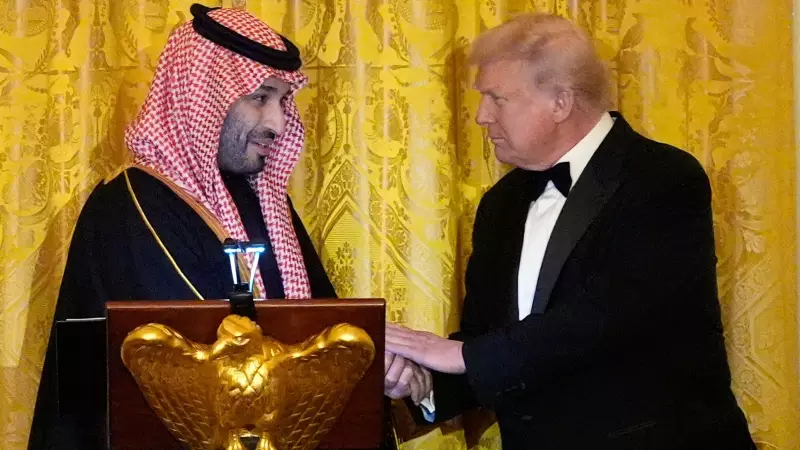
In a significant diplomatic development, former President Donald Trump has officially designated Saudi Arabia as a Major Non-NATO Ally during Crown Prince Mohammed bin Salman's recent visit to the United States. This strategic move marks a substantial elevation in the bilateral relationship between the two nations.
Historic Designation During High-Profile Visit
The announcement came during Crown Prince Mohammed bin Salman's official visit to the United States, where he met with Trump at the White House. The designation places Saudi Arabia among an exclusive group of countries that enjoy special security and economic relationships with the United States without being formal NATO members.
The Major Non-NATO Ally status provides Saudi Arabia with numerous military and economic advantages, including priority delivery for military purchases, participation in defense research and development programs, and access to expanded weapons storage facilities. This move represents a significant upgrade in the strategic partnership that has been developing for decades.
Strengthening Strategic Partnership
The relationship between the United States and Saudi Arabia has been particularly strong during the Trump administration. Both leaders have emphasized the importance of countering regional threats and promoting stability in the Middle East. This designation formalizes what has been an increasingly close security cooperation between the two nations.
Trump administration officials highlighted that this decision reflects the crucial role Saudi Arabia plays in maintaining regional security and combating extremist threats. The Kingdom has been a key partner in the fight against terrorism and has supported various US-led initiatives in the region.
Economic considerations also played a significant role in this decision. Saudi Arabia remains one of the world's largest oil producers and a crucial partner in maintaining global energy market stability. The enhanced relationship is expected to facilitate increased trade and investment between the two countries.
Regional Implications and Future Cooperation
This development carries significant implications for Middle Eastern geopolitics. The strengthened US-Saudi alliance sends a clear message to regional actors about America's commitment to its Gulf partners. It also potentially affects the balance of power in ongoing regional conflicts and diplomatic initiatives.
The timing of this announcement coincides with increasing tensions with Iran, Saudi Arabia's regional rival. Both countries share concerns about Iranian influence in the Middle East and have coordinated their approaches to addressing what they perceive as destabilizing Iranian activities.
Looking forward, this enhanced partnership is expected to include expanded military cooperation, intelligence sharing, and joint efforts to counter emerging security threats in the region. The designation also opens doors for increased technological and defense industry collaboration between American companies and Saudi partners.
The move has been welcomed by Saudi officials as recognition of the Kingdom's growing importance in international affairs and its commitment to regional stability. It represents another milestone in the relationship that has evolved significantly since the establishment of formal diplomatic ties in the 1930s.





